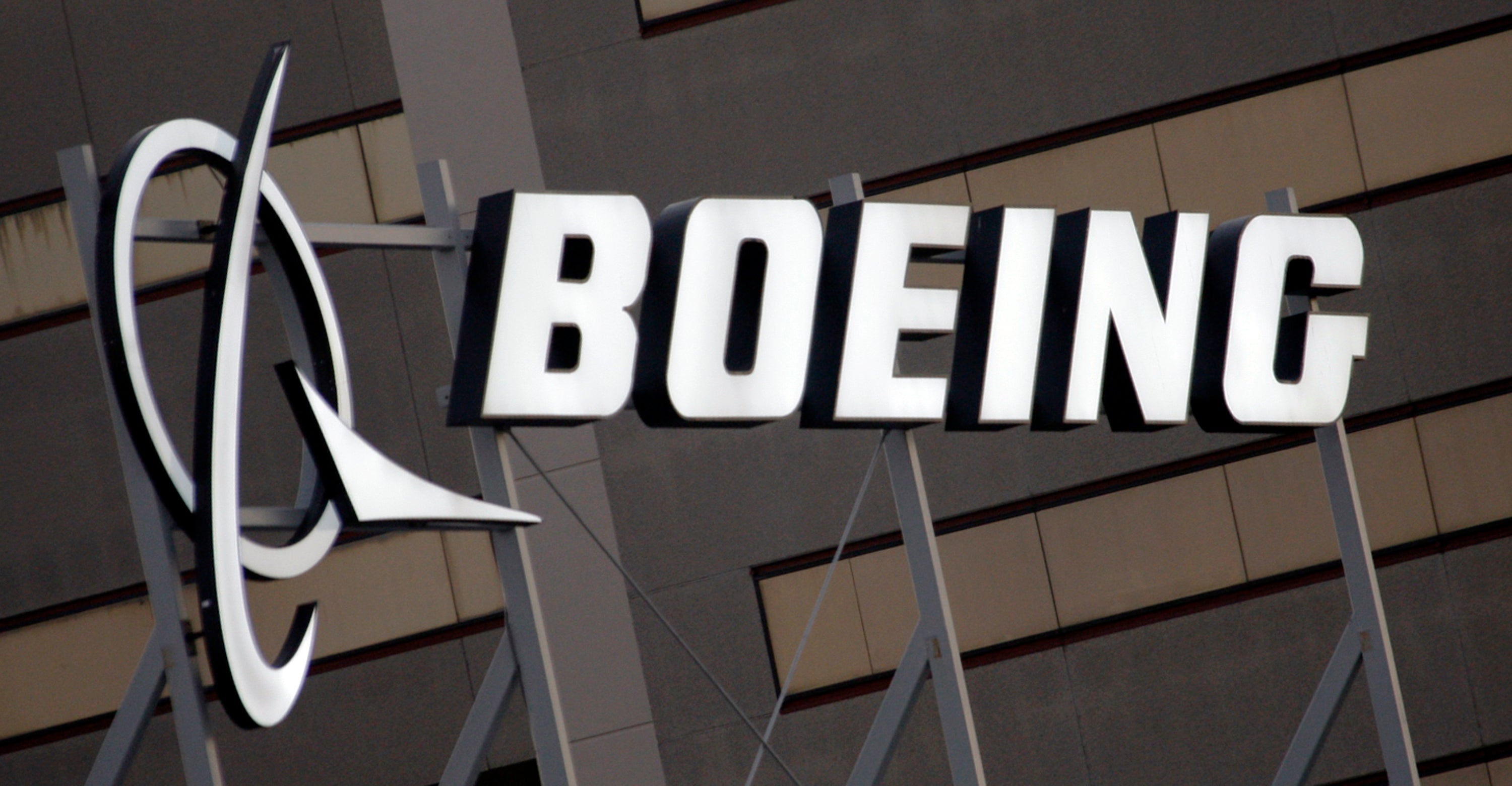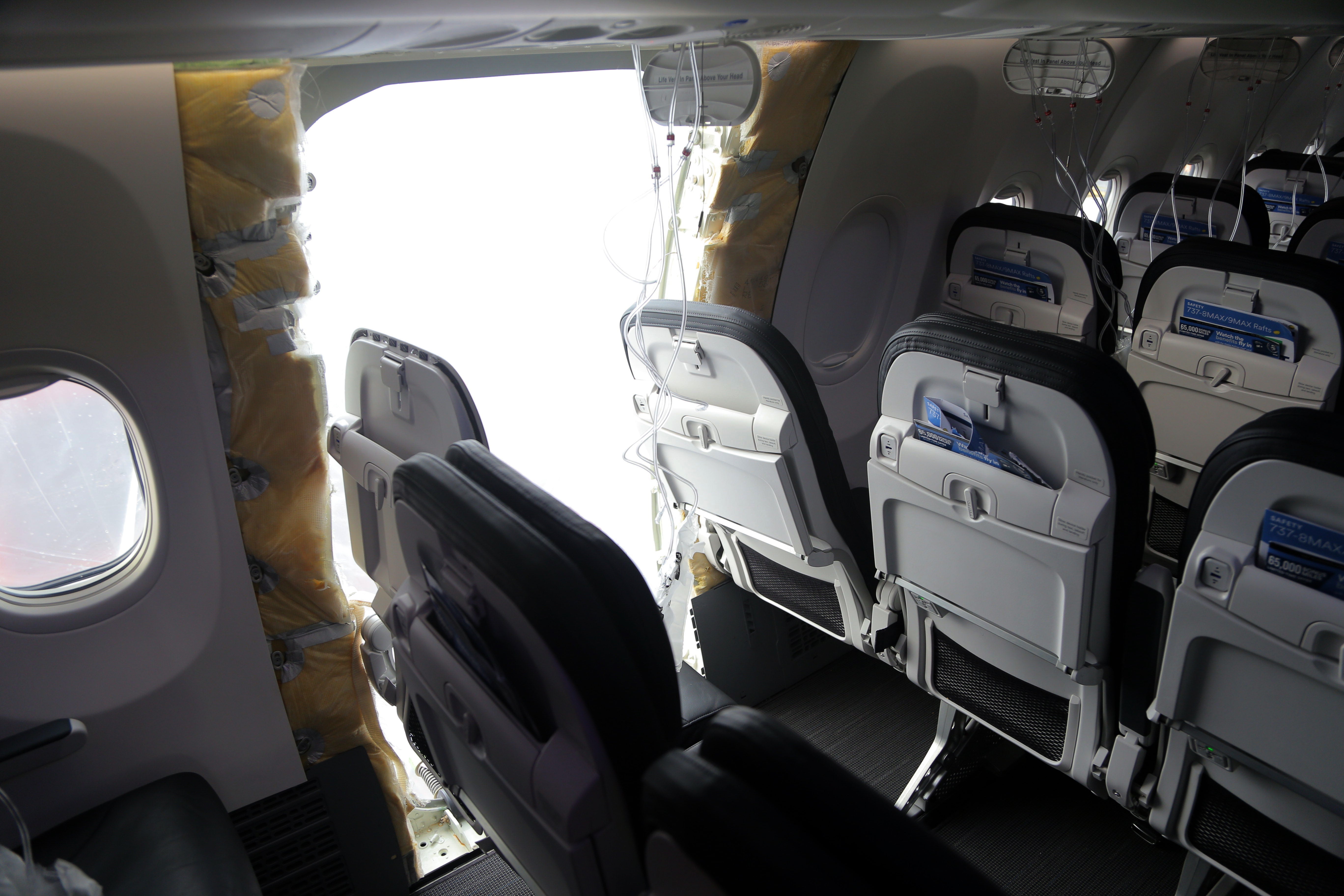Boeing whistleblower claims scrapyard parts were placed back on plane factory assembly lines
‘It’s a huge problem,’ Meyers said. ‘A core requirement of a quality system is to keep bad parts and good parts apart’
Your support helps us to tell the story
From reproductive rights to climate change to Big Tech, The Independent is on the ground when the story is developing. Whether it's investigating the financials of Elon Musk's pro-Trump PAC or producing our latest documentary, 'The A Word', which shines a light on the American women fighting for reproductive rights, we know how important it is to parse out the facts from the messaging.
At such a critical moment in US history, we need reporters on the ground. Your donation allows us to keep sending journalists to speak to both sides of the story.
The Independent is trusted by Americans across the entire political spectrum. And unlike many other quality news outlets, we choose not to lock Americans out of our reporting and analysis with paywalls. We believe quality journalism should be available to everyone, paid for by those who can afford it.
Your support makes all the difference.A Boeing whistleblower has claimed that the company used scrapyard parts on its factory assembly lines for years.
Merle Meyers, who worked as a Boeing quality-control manager for 30 years, told CNN that for years workers at the company’s Dreamliner factory in Everett, Washington, routinely took parts that were deemed unsuitable to fly out of an internal scrapyard and put them back on factory assembly lines.
Nonconforming parts ended up in the reclamation yard, Meyers said, only after being rejected by three departments: Engineering, procurement, and quality.
He alleged that workers would do so to meet production deadlines.
“It’s a huge problem,” Meyers told CNN. “A core requirement of a quality system is to keep bad parts and good parts apart.”
He alleged that in the early 2000s, for more than a decade, about 50,000 parts, including screws and wing flaps, “escaped” quality control and were used to build aircraft.
He added that the lapses he witnessed were intentional because workers would have known the parts were not good to use because parts that were meant to be scrapped were often painted red to signify they were unsuitable for assembly lines.
And he said the practice of using other unapproved parts in assembly lines is still going on.
“Now they’re back to taking parts of body sections – everything – right when it arrives at the Everett site, bypassing quality, going right to the airplane,” Meyers said.

However, he added that based on his conversations with current Boeing workers, he believes the practice of taking parts from the scrapyard no longer happens.
Meyers also showed CNN emails going back years in which he repeatedly flagged the issue to Boeing’s corporate investigations team, pointing out what he says were blatant violations of Boeing’s safety rules.
But he said investigators ignored his concerns and routinely failed to enforce safety rules, even ignoring “eyewitness observations and the hard work done to ensure the safety of future passengers and crew,” he wrote in an internal 2022 email to CNN.
In a statement to CNN, Boeing did not dispute Meyers’ allegations, adding that the company investigates “all allegations of improper behavior, such as unauthorized movement of parts or mishandling of documents,” and makes improvements when appropriate.
Current Boeing quality investigator, Sam Mohawk, also made similar allegations last month when he filed an official complaint reporting “a number of non-compliant parts making their way back to the airplanes for installation.” His complaint with the Occupational Safety and Health Administration was publicly released by a Senate subcommittee investigating Boeing.
Mohawk’s complaint said the issue of disappearing nonconforming parts continues. “Boeing is still losing parts to this day,” his official complaint reads.
Boeing has been under scrutiny for its safety standards since a faulty door panel blew off a Boeing 737 MAX plane mid-air during an Alaska Airlines flight in January.
Several passengers were injured in the incident, which grounded all Boeing 737 MAX 9s and prompted investigations by the FAA and the National Transportation Safety Board into the aircraft manufacturer and Spirit AeroSystems.
Reports released since have suggested the plane did not have the critical bolts it needed to keep the door plug in place when it left the factory.
Meanwhile, several whistleblowers have also come forward with safety concerns about Boeing, two of whom have died since coming forward with allegations.
One whistleblower, Santiago Paredes, 40, previously told The Independent that he is vigilant about his safety since blowing the whistle on Boeing.
“I’m always looking behind my mirror to make sure nobody’s car’s following me,” he said.

Meyers’ claims come after it emerged this week that the Department of Justice is poised to offer Boeing a deal to plead guilty to criminal charges over two deadly 737 MAX crashes in 2018 and 2019 that killed 346 people.
The aerospace giant is accused of violating a 2021 settlement related to the two fatal crashes – first in Indonesia in October 2018 and then in Ethiopia in 2019.
Boeing was also forced to disclose any allegations of fraud, cooperate with the government and avoid committing any felony offense. Under these conditions, the DOJ agreed to defer criminal prosecution for three years.
However, the DOJ said that Boeing had failed to meet its obligations under the agreement.
Now, the DOJ is proposing a new deal that would see the company plead guilty to conspiracy charges but avoid criminal trial, attorneys for the families of the crash victims told ABC News this May.
The company must also agree to appoint an external corporate monitor, pay a fine of about $200m and remain on probation for three years, the lawyers told ABC News.
Boeing has until July 7 to accept the deal. If Boeing rejects the terms, the DOJ can pursue criminal prosecution.

Join our commenting forum
Join thought-provoking conversations, follow other Independent readers and see their replies
Comments